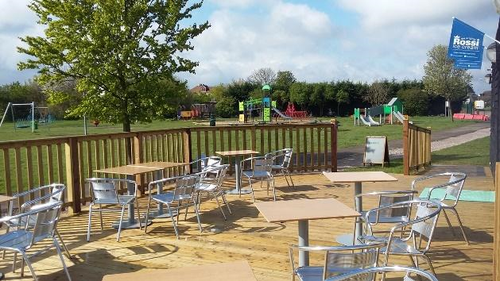In 2018 we announced the latest group of projects to be awarded grants from the Rethinking Parks fund. In this round, we were looking for organisations and partnerships who were well placed to replicate and adapt the most promising approaches to help run parks more sustainably, drawing from what they had seen others implement or test elsewhere.
Five months on, the Friends of Hardie Park from Thurrock are introducing us to their project, Performing Parks, the model that inspired them, their partnerships and their objective.
Below is the Friends of Hardie Park's introduction to the project:
Performing Parks is supporting five local communities in Thurrock to replicate the successful Community Stewardship social enterprise model adopted by the Friends of Hardie Park. This involves groups taking on responsibility for funding, managing and maintaining their local parks.
What’s the idea?
Performing Parks aims to replicate the successful Community Stewardship social enterprise model developed at Hardie Park in Stanford-le-hope, to five other communities in the same local authority area, Thurrock in Essex.
We aim to support five local groups to develop a hub in their park operating as a social enterprise. Based on our experience, we hope they can generate income to transform their park or greenspace while strengthening the local community.
Working closely with the five sites, we will provide practical support and expertise to empower the local teams and embed management skills to take on an ongoing and sustainable stewardship role for their park or greenspace. We will also develop a toolkit so that the approach can be adopted by other parks across the UK.

Who is working on the project?
Thurrock Council are the landowner of all the parks involved and their support is instrumental in developing a healthy working relationship. Each of the local teams will be empowered to achieve the transformation with the help of their local community, including individual volunteers, businesses, schools and other organisations.
Background
Local authority budgets for parks have declined, limiting opportunities for public investment in greenspaces. In our borough this has historically led to

under use and the creation of anti-social behaviour hotspots.
We believe that at Hardie Park in Stanford-le-hope we have developed a successful model to invest in and manage local parks through the creation of a sustainable social enterprise in the park, run by local people. We are calling this ‘Community Stewardship’.
The Friends of Hardie Park (as a registered charity) has taken on day-to-day responsibility for the park, whilst maintaining the local authority’s ownership and liability for the space. The Friends have developed a community hub through a building containing a café , generating an income to support new facilities, and various community activities and events. This has led to a transformation of a derelict and under used public greenspace.
Local councils alone cannot always source the funds for park improvements, and what we’ve achieved in Stanford-le-Hope through the Community Stewardship model has been the result of the effort of volunteers, as well as local businesses who receive local recognition and advertising. Park maintenance costs have been transferred to the park-based social enterprise , saving the local authority money.
What will the project achieve and how will other parks learn from your work?
The project will test whether Community Stewardship can be adopted successfully in different contexts. We believe there are several key ingredients for the model to work - a solid relationship with the local authority, a community organisation taking on stewardship of a public park needs to be suitably constituted in order to trade and at its heart must recruit and celebrate volunteer contribution. Its ethos must be open and inclusive and it needs to be run by local residents for the benefit of the whole community. It’s worth noting, that most but not all of the groups we are working with are developing or taking on a building - this allows them to host a café or other income-generating enterprise.

The five sites will learn together how to mobilise and empower their community to undertake the challenge of creating a sustainable social enterprise. They will learn about park management, collaborative partnerships, volunteer management, community engagement, governance policies and procedures, fundraising, running a food handling business and many other facets to the model. They will learn digital skills relating to marketing and communications, business skills including finance, human resourcing and planning.